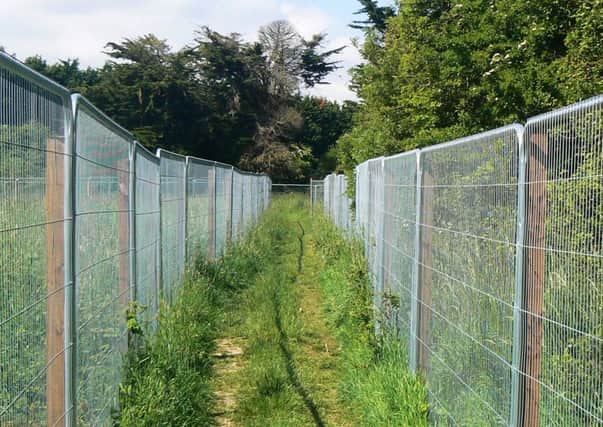Fences transform Yapton’s fields into a ‘prison site’


Christopher Weymouth said the developer of the land north of Burndell Road had wrecked the landscape with the mass of temporary steel mesh structures.
The fencing lines both sides of the public footpaths on an area which 173 homes are to be built.
Advertisement
Hide AdAdvertisement
Hide AdMr Weymouth, who has lived in Burndell Road for seven years, said: “This is an extraordinary collection of fences considering the developer is not going to start work until September.
“There are enclosed junctions where these paths meet. It is truly horrific.
“The whole summer is ruined by the sight of it. If you walk along these footpaths now, it is like walking along a prison corridor.
“This fencing should not be put up until work is about to be done. I have never seen a situation where the public have been so intimidated and abused by the use of temporary fencing. It is as if the landowner is being deliberately offensive to the local residents.”
Advertisement
Hide AdAdvertisement
Hide AdPermission for the building work was granted by a planning inspector after Arun District Council rejected the scheme. The original developer, Gleesons, sold the land to Persimmon whose Charles Church subsidiary will be carrying out the work.
Mr Weymouth complained about the fencing to the district council. Senior planner Peter Cleveland told him in an email seen by the Gazette the developer had put up the fencing to meet insurance requirements while they undertake ground investigations needed to meet the conditions of their approval before they start building.
As the land was privately owned, the council was unable to control the restrictions. “In any case, it would appear that ground investigations will require a certain amount of plant/machinery on site and, therefore, in the interest of public safety, the restriction of access to the land would be appropriate,” he wrote.